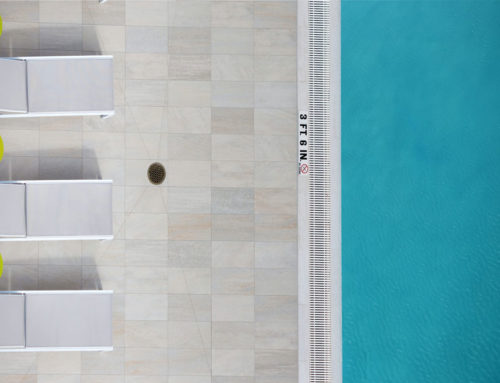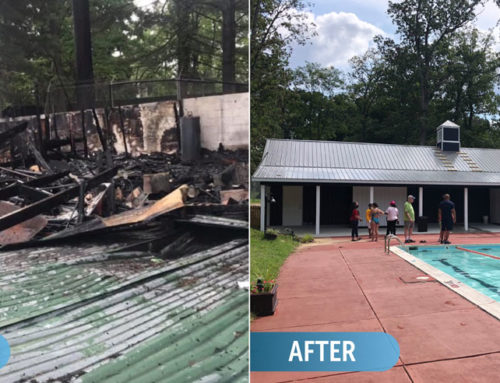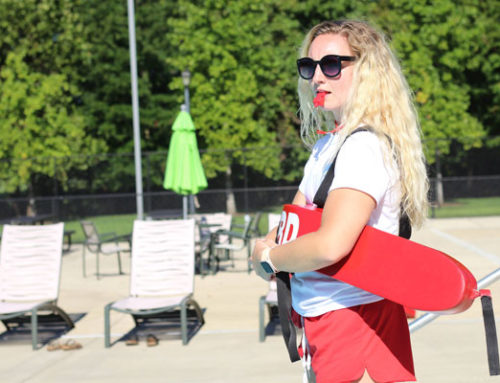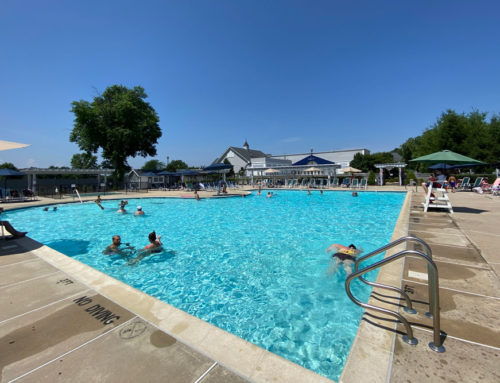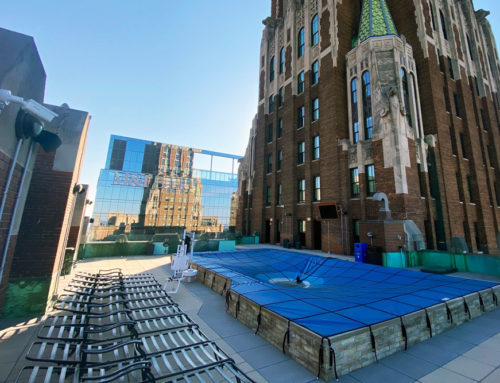Consider these four tips for keeping your pool a healthy haven for swimmers this summer season:
1) Encourage good hygiene. The average person has about .14 grams of feces on their bottoms, according to the CDC, and if this rinses off into the pool it can contaminate your water. Swallowing even a small amount of feces-contaminated water can make you sick with diarrhea. Encourage all swimmers to shower before they enter the pool and to avoid the pool entirely if they are experiencing diarrhea.
2) Take a break! Consider instituting a short “adult swim” once an hour. This reminds parents to take their young children on regular bathroom breaks, which can prevent accidents in the pool. Remind everyone to wash hands thoroughly after using the bathroom, and encourage parents to change diapers away from the pool — in a bathroom or diaper-changing area — to keep germs away from the water. Kids (and their parents) should re-shower before jumping back into the pool after each bathroom break.
3) Regularly monitor chlorine and other disinfectant levels. The good news is that properly maintained chlorine kills nearly all of the germs that cause RWIs, but the time it takes to kill each germ can vary, according to the CDC. For instance, properly maintained chlorine will generally kill E. coli in less than a minute, while it takes about 16 minutes to vanquish the Hepatitis A virus and about 45 minutes to kill the Giardia parasite. The Crypto parasite is perhaps the most persistent — it can potentially survive for more than 10 days.
The CDC recommends testing pH and disinfectant levels at least twice each day (and hourly during days of heavy use) and treating the pool with a biocidal shock treatment on a daily to weekly basis. It’s also important to regularly drain and replace portions of the water and to maintain filtration and recirculation systems according to manufacturer guidelines.
For guidance on maintaining proper chemical levels in your pool, turn to the experts at your pool management company.
4) Educate everyone. Develop employee policies for staff members who are ill with RWIs and educate everyone — staff and pool patrons — about the risks of RWIs and the importance of being a good pool “citizen” by following prevention guidelines. For posters, brochures, and fact sheets about preventing RWIs, visit the CDC’s Resources and Publications page.
At American Pool, we offer a full range of pool maintenance and management services and can help you keep your pool safe and healthy all season long. Get in touch to find out how.


